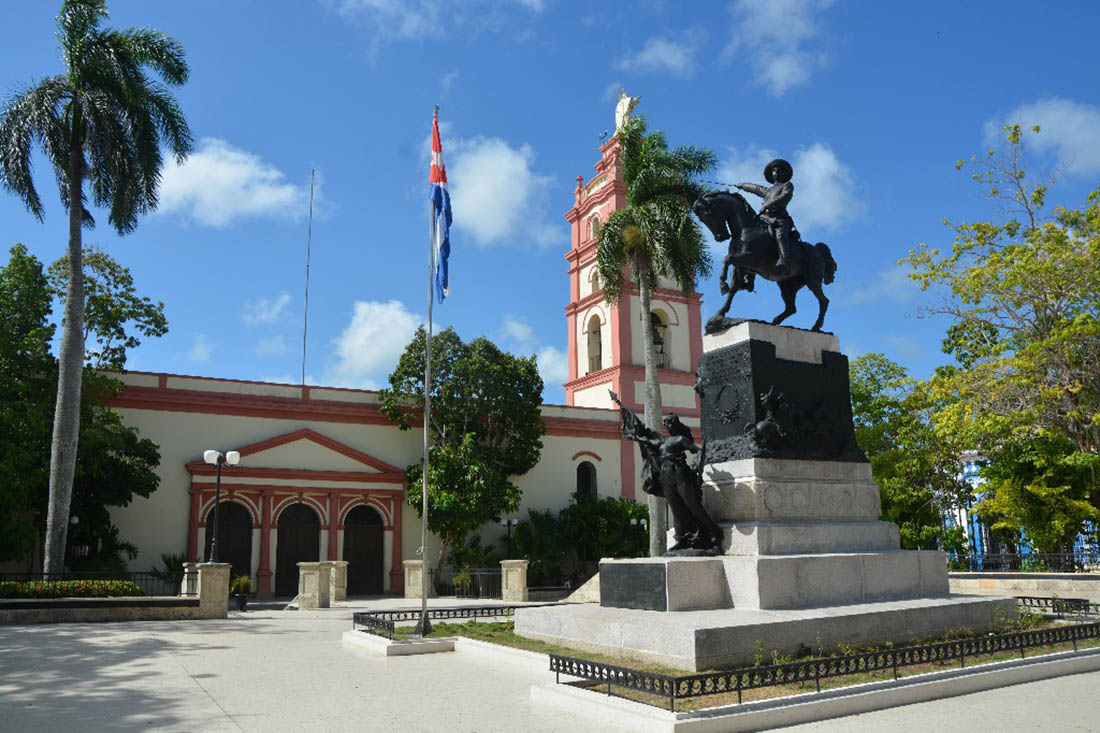Por: Ricardo Muñoz Gutiérrez
In Spanish dictionaries, the first and most common meaning of the definition of honor is the moral quality that induces people to comply with all the duties imposed by historical circumstances or the environment where they live.
On many occasions, when talking about the Major General of the Liberation Army Ignacio Agramonte Loynaz, the quality of “being a man of honor” is attributed to him; Let’s analyze some facts that are prove of that.
Let’s start with the merit, above any of his mistakes, of the consistent patriotism that characterized him and demonstrated, as did others, to abandon all material things and sacrifice the family, for the sublime love of the Homeland and fulfill the duty of fighting for independence.
On November 11th, 1868, when he went to the battlefield and presented himself to the leadership of the Revolutionary Board of Camagüey, he offered to visit the south of the territory, where insurgent groups operated without coordination between them. Agramonte managed to bring the chiefs together and through an agreement, which we have called Jobabo, they recognized the leadership of the Board and an operations plan.
On the night of November 26th, at Las Minas Meeting, he defended the only thesis that could lead to the triumph of the revolutionary movement when he expressed: “End once and for all the lobbying, the clumsy delays, the humiliating demands, Cuba has no other way. than to conquer redemption by taking it from Spain by force of arms.”
Perhaps, this attitude earned him so that on the 28th, in preparation for the Bonilla Combat, he was appointed to join the group of fighters who occupied the most advanced and, therefore, most dangerous position.
Faced with the murder of a comrade by the Spanish, Agramonte in a Proclamation of January 27th, 1869, expresses “[…] May our cry be forever. Independence or death! And let anyone else be looked at from now on as a motto of treason […]”. Destiny was drawn for the distinguished patriot.
On April 26th, 1869, Ignacio resigned from the position of secretary of the House of Representatives and assumed the leadership of the Division of the Liberation Army in Camagüey, with the rank of major general; it is consistent with the conviction expressed in Las Minas. It is not the transition from a politician to a military man; he is a patriot convinced of what is most necessary to do and where it is best served; if the way is by using weapons, with them you would have to keep going.
The fulfillment of duty does not admit weaknesses. In 1871, the mambi forces fight in very difficult conditions or simply survive, in the face of the superiority of Spain. Some believe the moment is opportune to convince the Major that his exit from the war is the only chance to preserve his life. He rejects the proposal; they warn him of the situation and question him:
– What elements do you have to continue the war? With what are you going to continue this bloody fight with, alone, lacking weapons and ammunition?
– With shame!
The caudillo replied; continuing the fight was the duty.
Much has been said about the differences with Carlos Manuel de Céspedes; but without specifying the different causes that generated them. When he believed that an order from the President of the Republic subtracted from his authority, he did not challenge it, he resigned from office.
But the duty was to fight the Spanish Army, patriots smoothed the distance between Céspedes and El Mayor and in January 1871 he resumed command of the Camagüey army. Aware of the importance of discipline and respect for the law, he wrote to his former teacher José M. Mestre:
Here there are conflicting opinions, but there are no divisions, nor dissensions of bad character; and we respect the established order of things, as long as it is not legally changed […] I am one of those who believe it is most necessary to change the officials who serve as a hindrance to the expeditious and energetic march of our military operations […].
The political maturity and the honor achieved by the Mayor is beautifully reflected by José Martí in the following trial:
[…] But it was never so great […] as when upon hearing the censure that his officials made of the slow government, eager to see him king for power as he was for virtue, he stood up, alarmed and arrogant, with a stature that he had not been seen until then, and said these words: “I will never allow to gossip in my presence about the President of the Republic!”
-His commitment to the independence of the Homeland is explained in a letter to his wife Amalia, on November 19th, 1872: “[…] I can assure you that I have never wavered for an instant, nor have I ever doubted that success is the precise consequence of the firmness in the purposes and of an unbreakable will […]”.
Translated by: Aileen Álvarez García






